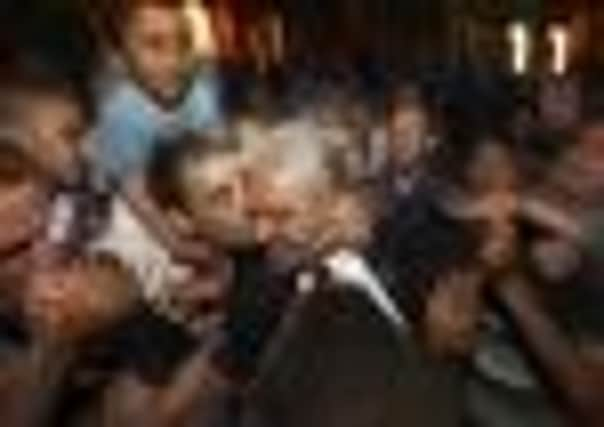Poll protest at result that leaves Egypt’s voters with painful choice


Both contenders are seeking to lay claim to the mantle of the “revolution” that toppled Mubarak 15 months ago, and to appeal to the many Egyptians who picked more centrist figures in last week’s first round.
Hatem Bagato, the secretary-general of the electoral committee, yesterday said it was investigating complaints about the voting filed by four candidates – second-placed Ahmed Shafiq, who was Mubarak’s last prime minister, leftist Hamdeen Sabahi, moderate Islamist Abdel Moneim Abolfotoh, and former Arab League chief Amr Moussa.
Advertisement
Hide AdAdvertisement
Hide AdFigures cited by state media and party campaigns put Mohammed Morsi, a colourless Brotherhood insider, in a run-off with Mr Shafiq, a bluff ex-air force chief who has sworn to restore security.
But Mr Sabahi, who came a close third, challenged his placing. “We have information that conscripts voted illegally,” he told a raucous crowd of supporters in Cairo at the weekend.
The polarised outcome has even led to suggestions from a range of politicians – swiftly rejected by the Brotherhood – that Mr Morsi should withdraw to allow Mr Sabahi to go through to the second round.
“This is unconstitutional,” Essam el-Erian, a leader of the Brotherhood’s Freedom and Justice Party (FJP), said, adding that if Mr Morsi quit at this stage, Mr Shafiq would win by default.
An FJP source said the Brotherhood believed vote-rigging had helped Mr Shafiq qualify for the second round, but that it had decided not to complain for fear the election might be invalidated and that a re-run might endanger Mr Morsi’s chances.
The Brotherhood, which already dominates both houses of parliament after earlier elections, wants to draw rival parties into a broad front to beat Mr Shafiq in the 16 and 17 June run-off.
“We have to organise the movement on the street with the grassroots to support the revolution because the old regime is coming back with Shafiq,” said a Morsi spokesman, Yasser Ali.
Mr Ali said Mr Morsi, 60, might meet Mr Abolfotoh, a former Brotherhood member who came fourth in the first round, and other leaders. Mr Shafiq, 70, is also reaching out to voters, including the young activists who despise him as a figure from the past.
Advertisement
Hide AdAdvertisement
Hide Ad“Your revolution was stolen,” he said at a news conference this weekend. “I pledge to return its fruits to your hands.”
The presidential election is supposed to close an army-led transition punctuated by violence and political disputes since a popular uprising overthrew Mubarak in February last year.
A Brotherhood victory in the presidential election could prolong a struggle with the military over the drafting of a new constitution, already mired in a political wrangle.
But a Morsi triumph is no foregone conclusion.
Many voters may stay away from the second round, seeing both candidates as unpalatable.
And many Christians, who make up about 10 per cent of Egypt’s 82 million people, are likely to swing behind Mr Shafiq, viewing him as a bulwark against rising Islamist influence.